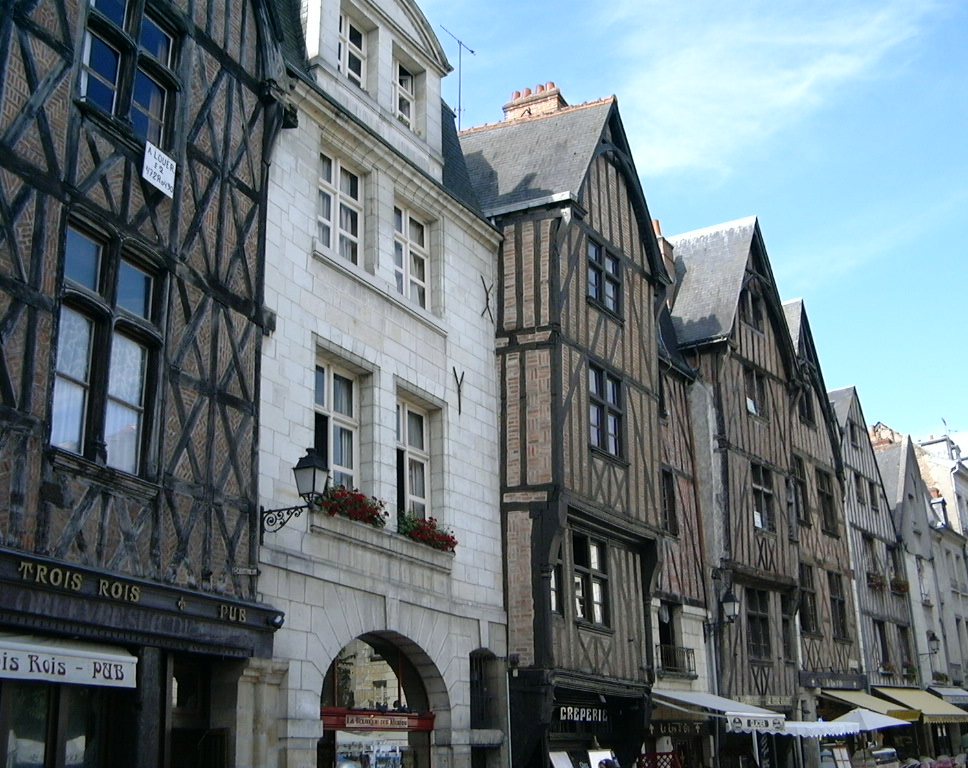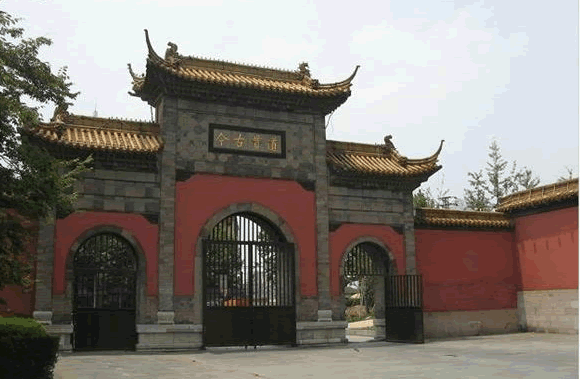|
Language Festival
A language festival ( eo, Lingva Festivalo) is a cultural and educational event held by Esperanto and other organizations in different countries around the world. The purpose of language festivals is to teach and provide information about the world's languages to people interested in languages and cultures, and to show the wealth and diversity of language. Language festivals also aim at demonstrating that all languages in the world are equally important and valuable, and that there should be no "major" and "minor" languages, which are ideas broadly promoted by Esperanto-speakers. During the first Language Festival in France in 1995, 32 languages were presented. In the second festival in 1996 there were already 65 languages. In the third, 85. The biggest festivals up till now took place in China and England with more than 100 languages in both events. History The first language festival was held in 1995 by an American Esperantist, Dennis Keefe, in Tours, France. The following year ... [...More Info...] [...Related Items...] OR: [Wikipedia] [Google] [Baidu] |
Esperanto
Esperanto ( or ) is the world's most widely spoken constructed international auxiliary language. Created by the Warsaw-based ophthalmologist L. L. Zamenhof in 1887, it was intended to be a universal second language for international communication, or "the international language" (). Zamenhof first described the language in '' Dr. Esperanto's International Language'' (), which he published under the pseudonym . Early adopters of the language liked the name ''Esperanto'' and soon used it to describe his language. The word translates into English as "one who hopes". Within the range of constructed languages, Esperanto occupies a middle ground between "naturalistic" (imitating existing natural languages) and ''a'priori'' (where features are not based on existing languages). Esperanto's vocabulary, syntax and semantics derive predominantly from languages of the Indo-European group. The vocabulary derives primarily from Romance languages, with substantial contributions from Ge ... [...More Info...] [...Related Items...] OR: [Wikipedia] [Google] [Baidu] |
Language
Language is a structured system of communication. The structure of a language is its grammar and the free components are its vocabulary. Languages are the primary means by which humans communicate, and may be conveyed through a variety of methods, including spoken, sign, and written language. Many languages, including the most widely-spoken ones, have writing systems that enable sounds or signs to be recorded for later reactivation. Human language is highly variable between cultures and across time. Human languages have the properties of productivity and displacement, and rely on social convention and learning. Estimates of the number of human languages in the world vary between and . Precise estimates depend on an arbitrary distinction (dichotomy) established between languages and dialects. Natural languages are spoken, signed, or both; however, any language can be encoded into secondary media using auditory, visual, or tactile stimuli – for example, writing, whi ... [...More Info...] [...Related Items...] OR: [Wikipedia] [Google] [Baidu] |
Esperantist
An Esperantist ( eo, esperantisto) is a person who speaks, reads or writes Esperanto. According to the Declaration of Boulogne, a document agreed upon at the first World Esperanto Congress in 1905, an Esperantist is someone who speaks Esperanto and uses it for any purpose. Lists of famous Esperantists Important Esperantists * Muztar Abbasi, Pakistani scholar, patron in chief of PakEsA, translated the Qur'an and many other works into Esperanto * William Auld, eminent Scottish Esperanto poet and nominee for the Nobel Prize in Literature * Julio Baghy, poet, member of the Academy of Esperanto and "Dad" ("Paĉjo") of the Esperanto movement * Henri Barbusse, French writer, honorary president of the first congress of the Sennacieca Asocio Tutmonda * Kazimierz Bein, "Kabe", prominent Esperanto activist and writer who suddenly left the Esperanto movement * Émile Boirac, French writer and first president of the Esperanto language committee (later the Academy of Esperanto) * Antoni ... [...More Info...] [...Related Items...] OR: [Wikipedia] [Google] [Baidu] |
Dennis Keefe
Dennis or Denis is a first or last name from the Greco-Roman name Dionysius, via one of the Christian saints named Dionysius. The name came from Dionysus, the Greek god of ecstatic states, particularly those produced by wine, which is sometimes said to be derived from the Greek Dios (Διός, "of Zeus") and Nysos or Nysa (Νῦσα), where the young god was raised. Dionysus (or Dionysos; also known as Bacchus in Roman mythology and associated with the Italic Liber), the Thracian god of wine, represents not only the intoxicating power of wine, but also its social and beneficent influences. He is viewed as the promoter of civilization, a lawgiver, and lover of peace—as well as the patron deity of both agriculture and the theater. Dionysus is a god of mystery religious rites, such as those practiced in honor of Demeter and Persephone at Eleusis near Athens. In the Thracian mysteries, he wears the "bassaris" or fox-skin, symbolizing new life. (See also Maenads.) A mediaeval L ... [...More Info...] [...Related Items...] OR: [Wikipedia] [Google] [Baidu] |
Tours
Tours ( , ) is one of the largest cities in the region of Centre-Val de Loire, France. It is the Prefectures in France, prefecture of the Departments of France, department of Indre-et-Loire. The Communes of France, commune of Tours had 136,463 inhabitants as of 2018 while the population of the whole functional area (France), metropolitan area was 516,973. Tours sits on the lower reaches of the Loire, between Orléans and the Atlantic Ocean, Atlantic coast. Formerly named Caesarodunum by its founder, Roman Augustus, Emperor Augustus, it possesses one of the largest amphitheaters of the Roman Empire, the Tours Amphitheatre. Known for the Battle of Tours in 732 AD, it is a National Sanctuary with connections to the Merovingian dynasty, Merovingians and the Carolingian dynasty, Carolingians, with the Capetian dynasty, Capetians making the kingdom's currency the Livre tournois. Martin of Tours, Saint Martin, Gregory of Tours and Alcuin were all from Tours. Tours was once part of Tour ... [...More Info...] [...Related Items...] OR: [Wikipedia] [Google] [Baidu] |
Cheboksary
Cheboksary (; russian: Чебокса́ры, r=Cheboksáry, p=tɕɪbɐˈksarɨ; cv, Шупашкар, ''Şupaşkar'') is the capital city of Chuvashia, Russia and a port on the Volga River. Geography The city is located in the Volga Upland region and stands on the shore of the Cheboksary Reservoir. Its area is .Resolution #2083 The satellite city of Novocheboksarsk is located about east of Cheboksary. History Cheboksary was first mentioned in written sources in 1469, but according to archaeological excavations, the area had been populated much earlier. The site hosted a Bulgarian city of Veda Suvar, which appeared after Mongols defeated major Volga Bulgarian cities in the 13th century. During Khanate period the town is believed by some to have had a Turkic (probably, Tatar) name Çabaqsar and that the current Russian and English names originate from it. However, in maps by European travelers it was marked as Cibocar (Pizzigano, 1367), Veda-Suar (Fra Mauro, 1459). Shupashkar, ... [...More Info...] [...Related Items...] OR: [Wikipedia] [Google] [Baidu] |
Nanjing University
Nanjing University (NJU; ) is a national public research university in Nanjing, Jiangsu. It is a member of C9 League and a Class A Double First Class University designated by the Chinese central government. NJU has two main campuses: the Xianlin campus in the northeast of Nanjing, and the Gulou campus in the city center of Nanjing. Established in 1902 as Sanjiang Normal School, Nanjing University underwent a number of name changes, such as Nanjing Higher Normal School, National Southeastern University and National Central University, until it was renamed Nanjing University in 1950. It merged with the University of Nanking in 1952. NJU is perennially ranked one of the best research universities in China, and one of the most selective universities in the nation. As of 2022, Nanjing University ranked 7th in China and 95th globally by Times Higher Education World University Rankings. Regarding scientific research output, the Nature Index Annual Table 2022 ranked Nanjing Universit ... [...More Info...] [...Related Items...] OR: [Wikipedia] [Google] [Baidu] |
Ghil'ad Zuckermann
Ghil'ad Zuckermann ( he, גלעד צוקרמן, ; ) is an Israeli-born language revivalist and linguist who works in contact linguistics, lexicology and the study of language, culture and identity. Zuckermann is Professor of Linguistics and Chair of Endangered Languages at the University of Adelaide, Australia.Sarah Robinson, March 11, 2019, The LINGUIST ListFeatured Linguist: Ghil‘ad Zuckermann, accessed May 4, 2020 He is the president of the Australian Association for Jewish Studies. Overview Zuckermann was born in Tel Aviv in 1971 and raised in Eilat. He attended the United World College (UWC) of the Adriatic in 1987–1989. In 1997 he received an M.A. in Linguistics from the Adi Lautman Program at Tel Aviv University. In 1997–2000 he was Scatcherd European Scholar of the University of Oxford and Denise Skinner Graduate Scholar at St Hugh's College, receiving a D.Phil. (Oxon.) in 2000. While at Oxford, he served as president of the Jewish student group L'Chaim Socie ... [...More Info...] [...Related Items...] OR: [Wikipedia] [Google] [Baidu] |
Adelaide Language Festival
The Adelaide Language Festival is a language festival that celebrates linguistic diversity and encourages people to learn about the cognitive and cultural advantages of multilingualism. It consists of keynote presentations, musical performances, Welcome to Country by a local Aboriginal Australian, and intensive sessions in dozens of languages. The Festival was founded in 2014 by Ghil'ad Zuckermann, Professor of Linguistics and Endangered Languages at the University of Adelaide. It is held at Bonython Hall, University of Adelaide. Each Adelaide Language Festival attracts approximately 500 people. Languages represented The Adelaide Language Festival is known for its representation of revived, engineered, endangered and other Less Commonly Taught Languages. It has included intensive sessions of more than 40 languages: * Australian Aboriginal languages: Pitjantjatjara, Yolngu matha, Flinders Island Language (Queensland) (the latter taught by Peter Sutton). * revived languages: Rev ... [...More Info...] [...Related Items...] OR: [Wikipedia] [Google] [Baidu] |
Surabaya
Surabaya ( jv, ꦱꦸꦫꦧꦪ or jv, ꦯꦹꦫꦨꦪ; ; ) is the capital city of the Provinces of Indonesia, Indonesian province of East Java and the List of Indonesian cities by population, second-largest city in Indonesia, after Jakarta. Located on the northeastern border of Java island, on the Madura Strait, it is one of the earliest port cities in Southeast Asia. According to the Government of Indonesia, National Development Planning Agency, Surabaya is one of the Regions of Indonesia#Development regions, four main central cities of Indonesia, alongside Jakarta, Medan, and Makassar. The city has a population of 2.87 million within its city limits at the 2020 census and 9.5 million in the extended Surabaya metropolitan area, making it the List of metropolitan areas in Indonesia, second-largest metropolitan area in Indonesia. The city was settled in the 10th century by the Janggala, Kingdom of Janggala, one of the two Javanese kingdoms that was formed in 1045 when ... [...More Info...] [...Related Items...] OR: [Wikipedia] [Google] [Baidu] |
Cultural Festivals
A festival is an event ordinarily celebrated by a community and centering on some characteristic aspect or aspects of that community and its religion or cultures. It is often marked as a local or national holiday, mela, or eid. A festival constitutes typical cases of glocalization, as well as the high culture-low culture interrelationship. Next to religion and folklore, a significant origin is agricultural. Food is such a vital resource that many festivals are associated with harvest time. Religious commemoration and thanksgiving for good harvests are blended in events that take place in autumn, such as Halloween in the northern hemisphere and Easter in the southern. Festivals often serve to fulfill specific communal purposes, especially in regard to commemoration or thanking to the gods, goddesses or saints: they are called patronal festivals. They may also provide entertainment, which was particularly important to local communities before the advent of mass-produced entert ... [...More Info...] [...Related Items...] OR: [Wikipedia] [Google] [Baidu] |





